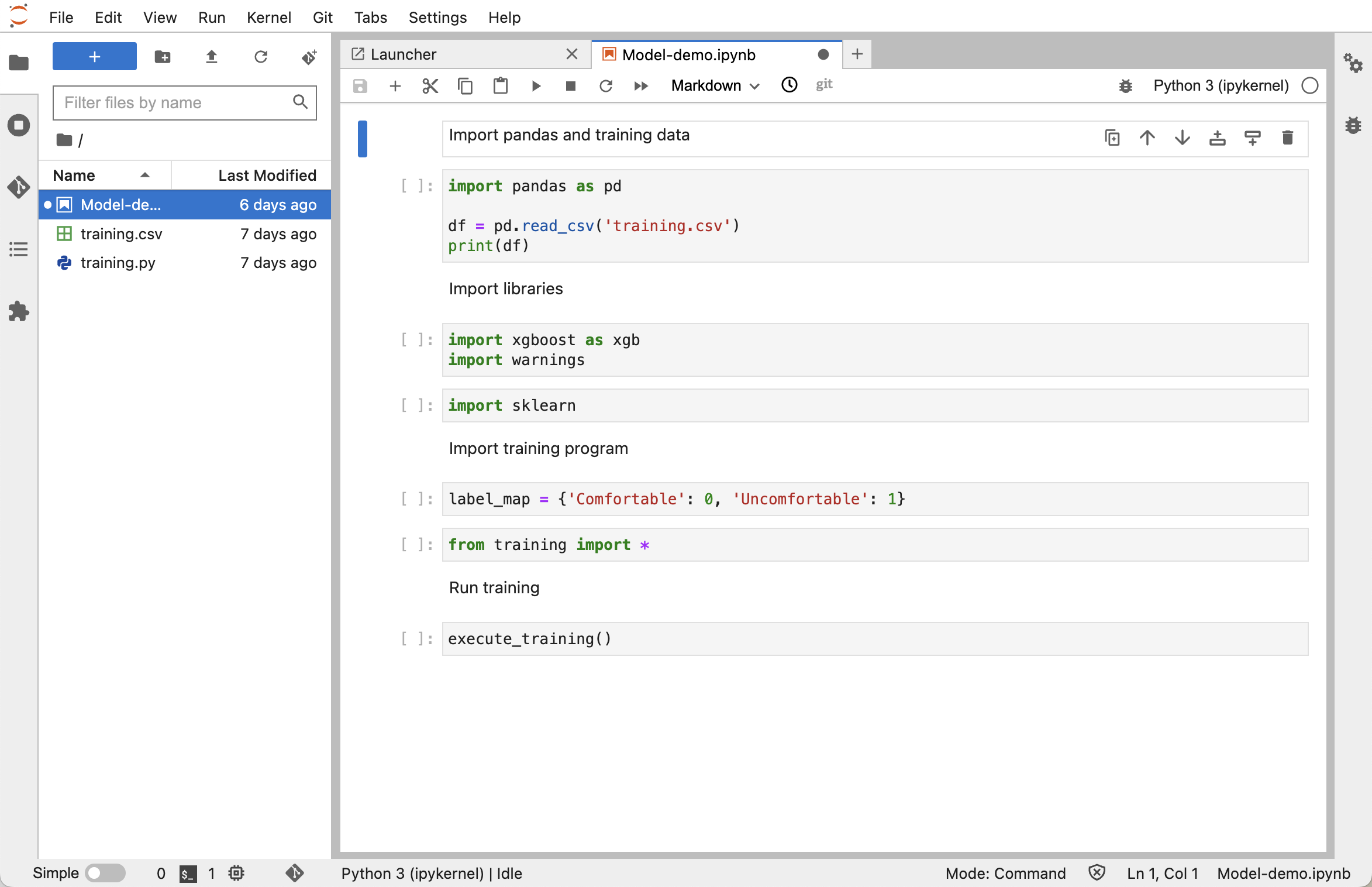This application offers a streamlined Jupyter Notebook environment that's optimized for containerization. Although based on a TensorFlow 2.12.0 image with Python 3.10 support, the notebook primarily employs XGBoost for model training. It provides a comprehensive data science pipeline, featuring data manipulation with pandas and machine learning via XGBoost. Fully containerized, this Jupyter-XGBoost notebook ensures effortless deployments using Docker.
- 📦 This app is purpose-built for container deployment, ensuring a uniform operating environment and hassle-free deployments via Docker.
- 🚀 This app is powered by a Jupyter Notebook environment, an open-source web application that lets you create and share documents that contain live code, equations, visualizations, and narrative text.
- ✅ The base image of this app incorporates TensorFlow, offering the flexibility to extend its capabilities for deep learning. TensorFlow is a leading open-source platform, renowned for its versatile machine learning toolkit and wide usage in handling unstructured data.
- 💾 This app utilizes pandas for data manipulation. Pandas provides fast, flexible, and expressive data structures designed to work with structured data.
- 🗃️ This app leverages XGBoost for gradient boosting. XGBoost is an optimized distributed gradient boosting library designed to be efficient, flexible, and is the most used library for structured, tabular data.
- Clone the repository:
git clone git@github.com:build-on-aws/jupyter-notebook-ml-batch-amazon-eks.git
cd jupyter-notebook-ml-batch-amazon-eksFollow these steps to initiate the notebook environment via Docker.
- Build the Docker image in the root project directory.
docker build -t batch-ml-image .- Run the Docker container.
docker run --memory=4g --cpus=2 -p 8888:8888 batch-ml-image- Open the Model-demo.ipynb file to begin training the model.
See CONTRIBUTING for more information.
This library is licensed under the MIT-0 License. See the LICENSE file.
